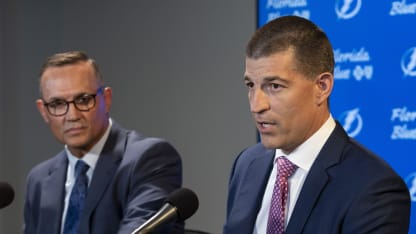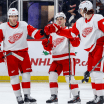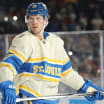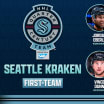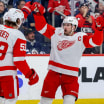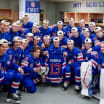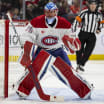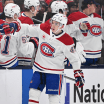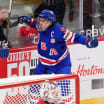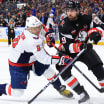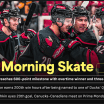How active do you plan to be at the NHL Trade Deadline on Feb. 25?
"I'll make a trade if there's one to be made. I don't know what that will be right now. Ryan McDonagh and J.T. Miller were deadline acquisitions last year, so the possibility is always there. You can't predict. Some years there are deals to be made, sometimes there aren't."
Forward Brayden Point, who will turn 23 on March 13, can become a restricted free agent on July 1 and is set to get a significant pay day. How difficult could this situation potentially be for the organization?
"He's going to get a nice raise. I don't know what that will be. It's going to be a priority.
"That's the way the game is going these days. The League is younger. There are very few players over 35 now, even over 30. Eighteen years ago when I started, often the older teams were the better ones. They were battle tested. They were experienced. They knew all the tricks. Back then, it was the guys 31 and older who were being paid in free agency. But the CBA has changed that since then and so have a lot of other things in the game. Players skill sets are higher, and at a younger age, too. Coaching has changed all the way to the youth level. I have two boys in minor hockey and all the emphasis is about skill. Agility in skating, agility with the hands, working on the shot. We just have a generation of players who have grown up with that type of teaching and end up being really on skill because they're really, really skilled.
"Ultimately you want a good team and your good players are going to get paid. If you have to pay good players, well, that's a good problem. What you don't want to do is pay players whose performance doesn't necessarily correlate with the cap space they're using up. How much value are they bringing to the team? How much bang are you getting for your buck.? That's what you're trying to do."
You like your wings hot and your steaks well-done. You also went to the same school and played baseball growing up with Eric Gagne, who went on to record 187 saves in Major League Baseball. What was that like?
"It was a sports-oriented school (Polyvalente Edouard Montpetit in Montreal). We would go to school from 8-12 and then we would work on our various sports. Eric and I were both in the baseball program. Russell Martin went to the same school. He went to the same program.
"It was a great experience. To this day I still love competing. That's what happens when we have staff hockey. I'm not very good but I give it my all. I was a better baseball player. We were surrounded by good athletes. So, whether we were playing baseball or ball hockey or volleyball or badminton, the level of competition was really high. And I loved that. Still do."
